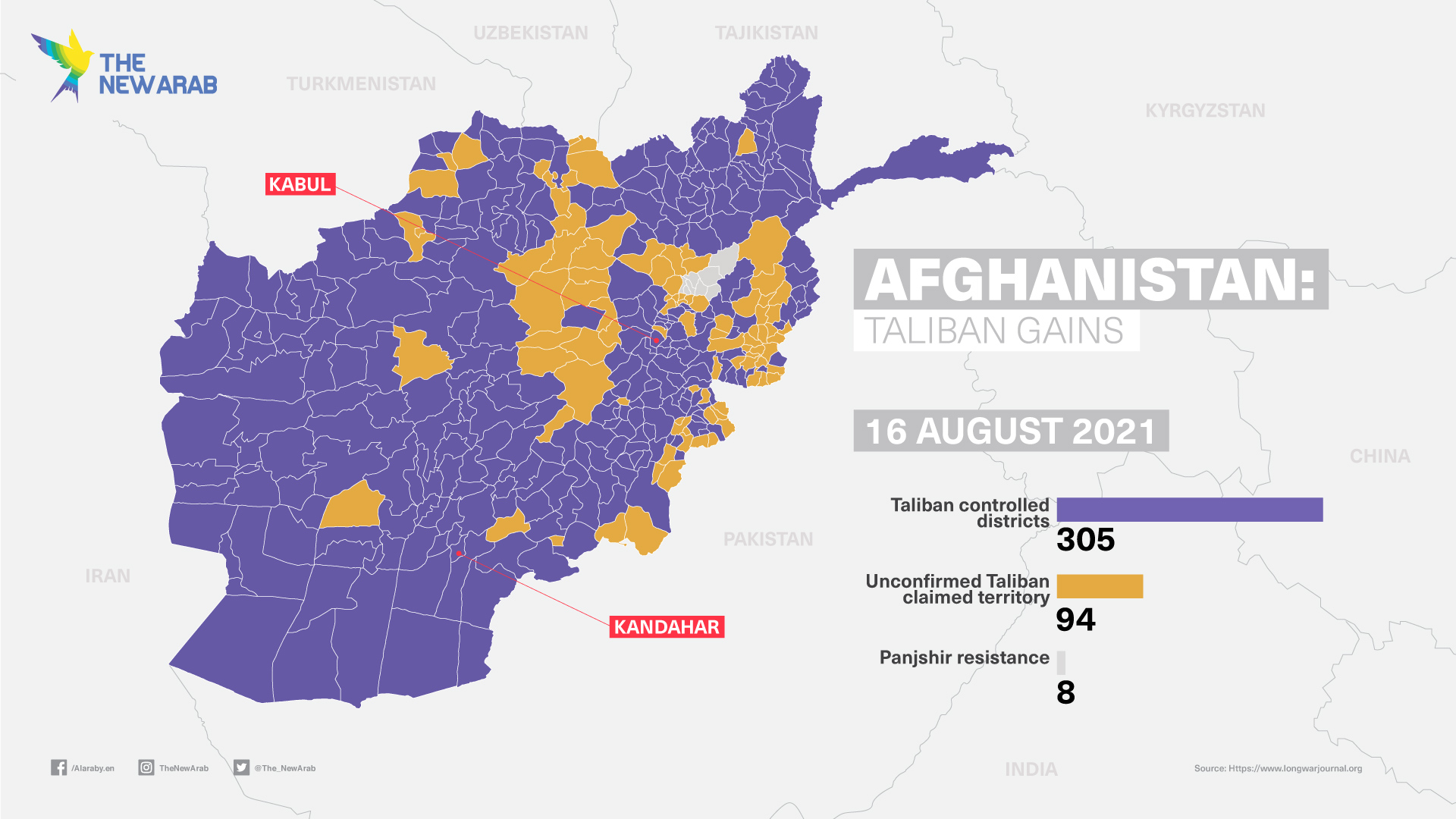China sifts opportunity from ashes of US Afghan project, remains 'watchful'
China's overtures to the Taliban indicate a bid to extract maximum benefit from the dramatic collapse of the US project in Afghanistan.
But Beijing will remain watchful of the hardliners now running the show in Kabul, especially as Afghanistan borders China's eastern Xinjiang province, home to the Muslim-majority Uyghurs, analysts say.
Around a fortnight before the Islamists seized power in a lightning offensive that stunned the world, Foreign Minister Wang Yi hosted a Taliban delegation in Beijing.
And just one day after the Taliban entered Kabul, China said it was ready to deepen "friendly and cooperative" relations with Afghanistan.
While Beijing says it has no desire to direct any future political settlement in Kabul, it appears to have scented opportunity to press its Belt and Road interests as the US pulls out.
As power transitions to the Taliban, Beijing has a few key demands, said Hua Po, an independent political analyst in Beijing.
"The first is to protect China's investments and ensure security of Chinese nationals," he says.
"Second, it is necessary to cut off relations with East Turkestan (Xinjiang) separatists and not let them return to Xinjiang."
But pragmatism appears to be prevailing over ideology towards a group whose religious doctrines have in the past left China queasy.
And the Taliban appear to have understood that if they want good relations with China, they will have to leave China's Muslims -- whose plight is a rallying cause for Islamists worldwide -- alone.
A Taliban spokesman, Mohammad Naeem, has vowed that "Afghanistan's soil would not be used against any country's security."
In China, state media has buffed up the potential of driving major economic schemes under the new regime, from the Aynak Copper Mine project -- Afghanistan's largest copper deposit, and the world's second-largest -- to the northern oil fields of Faryab and Sar-i-pul.
Beijing-backed firms have already pumped hundreds of millions of dollars into rights to mine and build, but extreme insecurity has iced most of the plans.
Meanwhile, Afghanistan's generous lithium deposits -- the country has been dubbed the 'Saudi Arabia of lithium' -- have manufacturers of electric vehicles which run on the mineral licking their lips.
And China is the worlds largest EV maker.
The Taliban, who stand to benefit hugely from building ties with Beijing, "look forward to China's participation in the reconstruction and development of Afghanistan," foreign ministry spokeswoman Hua Chunying told reporters on Monday.
"We welcome this," she said.
China's embassy in Kabul remains operational, although Beijing began evacuating Chinese citizens from the country months ago as security deteriorated.
Afghanistan has for centuries been a cauldron of big power aspirations in central Asia -- many of which have eventually run aground.
While the Taliban are trying to rebrand as a more moderate force than during their first brutal hardline incarnation, they remain an unpredictable entity leading a volatile country.
"China knows this history, and they know that this is a government that they are not going to entirely trust," said Raffaello Pantucci, a senior fellow at the S. Rajaratnam School of International Studies in Singapore who specialises in Afghanistan.

And that makes a hasty investment drive unlikely, he said.
"Why is it suddenly a more attractive prospect now, when you have a less stable situation with a government that is not immensely reliable?"
"I don't foresee Chinese companies saying 'let's go and mine some lithium' especially in some parts of the country that are still very dangerous," Pantucci added.
But where China is reaping the benefits already is on the propaganda front, with Beijing openly wringing maximum propaganda value from America's spectacular foreign policy failure in Afghanistan.
Its state media pumped out the images of desperate Afghans flooding Kabul airport in an effort to flee on Monday as a sign of the chaos prompted by the US retreat.
On Tuesday, foreign ministry spokeswoman Hua said Washington had left "an awful mess of unrest, division and broken families" in Afghanistan.
"America's strength and role is destruction, not construction."
State media has peddled the idea that America's rush from Afghanistan reflects its fair-weather attitude to all allies -- including in Taiwan, which seeks strength from Washington's security guarantee as it defies Beijing.
US President Joe Biden, hammered over the disorderly retreat, has defended the withdrawal saying China and Russia would "love nothing more" than his country to have continued to sink resources into the Afghanistan quagmire.
But once the moment for quick point-scoring passes, China will take a much colder pragmatic view of Afghanistan under the Taliban, analyst Hua said.
![China is concerned by the Taliban [Getty]](/sites/default/files/styles/large_16_9/public/2021-08/GettyImages-1234745709.jpg?h=8893b67d&itok=lGIVZ7q1)


